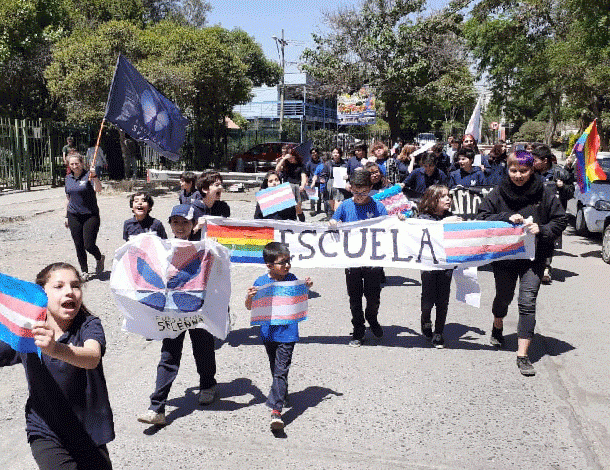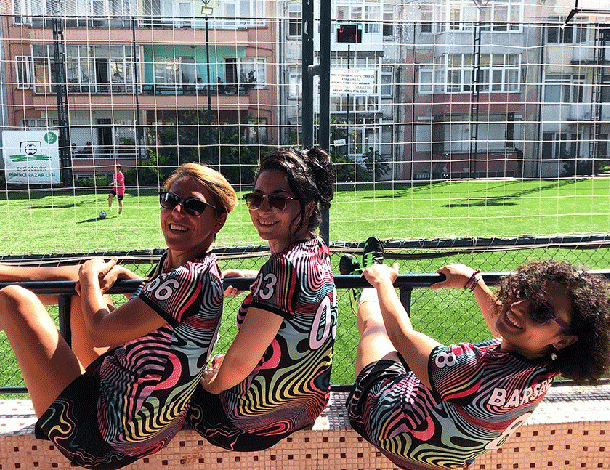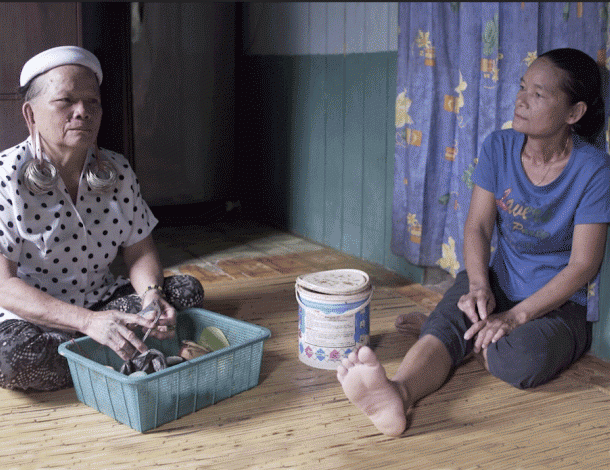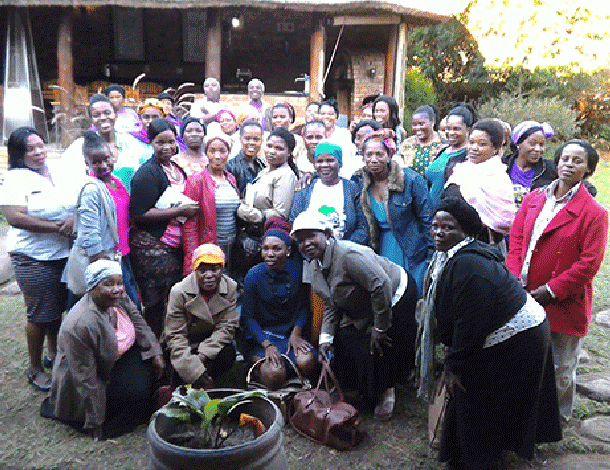Updated 21 February 2020
Feminist realities blossom around the globe and guide us toward transforming our communities. They say, "change is possible, and is happening now."
We know that every day, in every region of the planet, women, gender non-binary, non-conforming, and LGBTQI people are robbed of their rights in blatant, subtle, and violent ways. At the same time, the feminist spirit of resistance and liberatory regeneration is never extinguished. It is a life-force that sprouts against all the odds within the cracks of our oppressive overarching systems - from Santiago to West Sumatra, Fuleni to Istanbul.

People and groups all over the world are evolving feminist ideas and practices to create Feminist Realities, which put the power of our movements into action.
Chile: A welcoming school for trans kids
In Ñuñoa, east of Santiago, Chile, the first school for trans children in Latin America welcomes children who have been bullied, excluded or do not feel comfortable in the traditional education system. Thirty seven students attend the Amaranta Gómez school, where they are free to expand and explore their experiences as trans children and teens.
"Students can develop a critical and constructive vision of their own processes, that will allow them to become agents of change, enriched with social, gender and sociocultural diversities, unique in Chile and Latin America," says Evelyn Silva, the school's principal.
Named after muxe trans activist Amaranta Gómez, this school takes the right to access to education to another level, creating a safe space that challenges the patriarchal system.
“To be trans is to be yourself and trust in yourself as well. If you want to be trans, you can, because this is your body” - student at the Amaranta Gómez school for trans children.
Turkey: Atletik Dildoa's Queer Olympix

A reclamation of the childhood - and adult - right to exist in public space is also a theme that runs through the ethos of Istanbul’s Atletik Dildoa, a women and lgbti+ group who struggle for visibility and recognition through sports, and who resist gender-based discrimination in sports.
Atletik Dildoa members point out that football in Turkey, as in many places of the world, is a very male-dominant field where sexism, and homo/bi/transphobia are rampant. As adults, women and LGBTI+ people struggle to find a place in this context, even though many played football in their childhoods.
Firm in the belief that engaging in sport is a powerful way to free our bodies and celebrate collective existence, Atletik Dildoa organizes Istabul’s Queer Olympix, an annual event featuring everything from beach volleyball, football, tennis, acrobatics, table tennis, marbles, petanque, and long jump to workshops and roundtable meetings to share sports-related experiences and play games questioning barriers.
“Playing games is not just a free time activity or childhood nostalgia for us,” says one Queer Olympix organizer.
“It is the right we try to win and protect by opening ourselves to fields. For three days, we aim to create an autonomous sports field in which people with any gender, age, and body expression can feel comfortable.”
Indonesia: A feminist paddy harvest

Land rights are a feminist issue, and Indigenous women of Indonesia have been finding creative ways to come together to resist corporate theft of their ancestral lands. When a logging company claimed Indigenous land in Rukam Village and Sungai Paur Village in Jambi Province, West Sumatra, the women reclaimed the land by planting paddy on it. During panen raya (the great harvest festival) they invite neighbouring communities, government officials and company representatives to publicize what they are fighting for (their livelihoods, as symbolised by paddy), rather than what they are fighting against (the logging company).
When a logging company representative showed up with a large bag of cash at the home of the community’s leader, his wife crept out of the house and roused the women of the village. They gathered around the house with their sleeping children in their arms, simply staring at him in silence until he retreated.
When a community member was falsely charged with halting the operation of a logging company, the women of the village turned themselves in, along with their children and domestic animals, such as pigs and hens, claiming they were the ones responsible. Their action delayed the capture of the accused, allowing the community to come up with a response strategy, and prevent police officers from using violent force to capture him.
According to Long Isun women fighting for their ancestral lands, “We can give birth to our children but we cannot give birth to lands where our children will live and rely upon in the future,” says Martha Doq, director of a local NGO assisting the Long Isun community with their conflict with the mining company.
South Africa: Planting hope and health

Facing export-oriented coal mine encroachments that pollute their environment and deplete their water supply, the women of Somkhele and Fuleni have been working together to build feminist alternatives for their communities. The mine has impacted women’s lives and livelihoods, degrading the environment due to dirty mining practises, drying out an already drought-stricken community that relies on the land for survival.
But over the last two years, women from Fuleni have mobilized together to advocate for their right to water, as well as taking up training on agroecology to innovate adaptive farming approaches with the support of WoMin, an African gender and extractives alliance.
Together, fifteen women are building a farming cooperative, organising to feed their families and support livelihoods by selling food that they have grown themselves.
“This farming project has really helped us a lot. We have been farming for a long time but ever since Tendele coal mine started mining in 2006 in Somkhele, water has been an issue for us. Now we are doing what we love and are good at doing. We are happy that now we know very well that the kind of food that we are eating with our families is 100% healthy.” Khanyisile Mathe, Fuleni.
2224x1253.jpg)